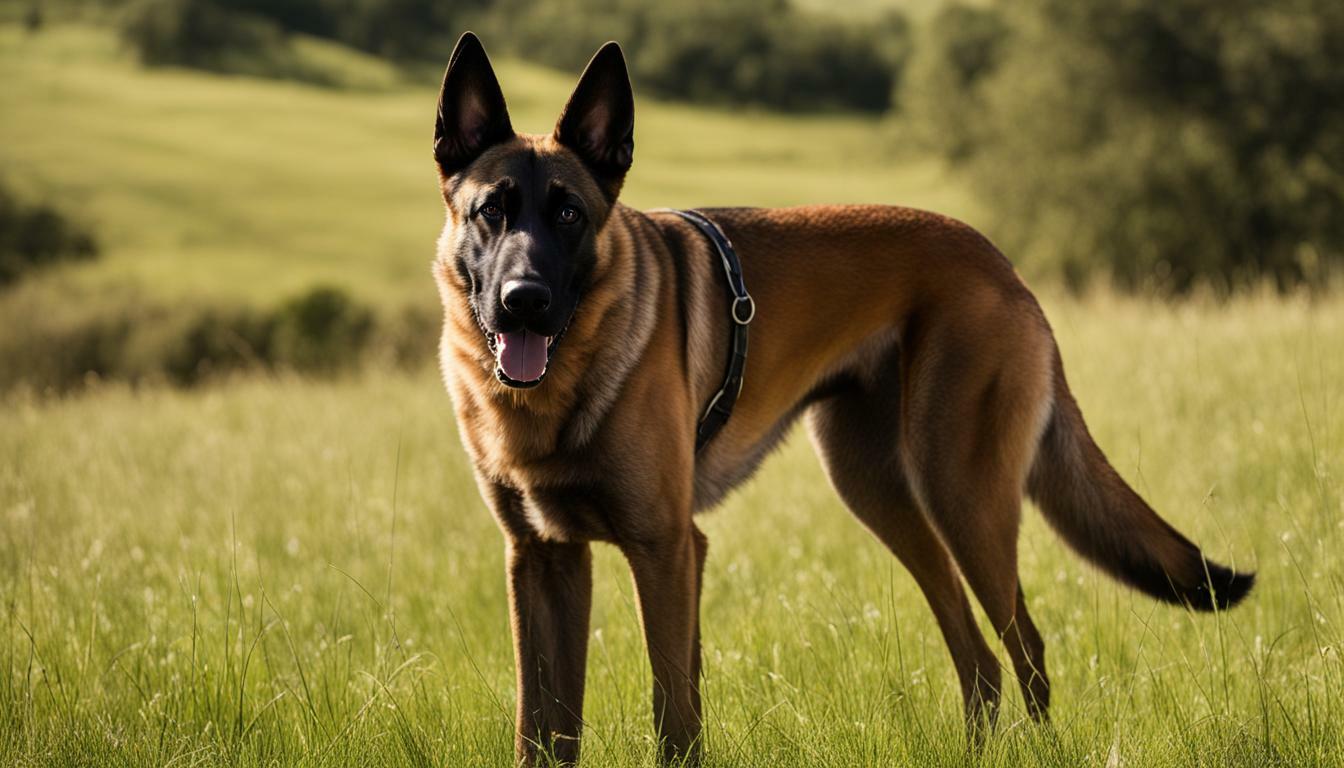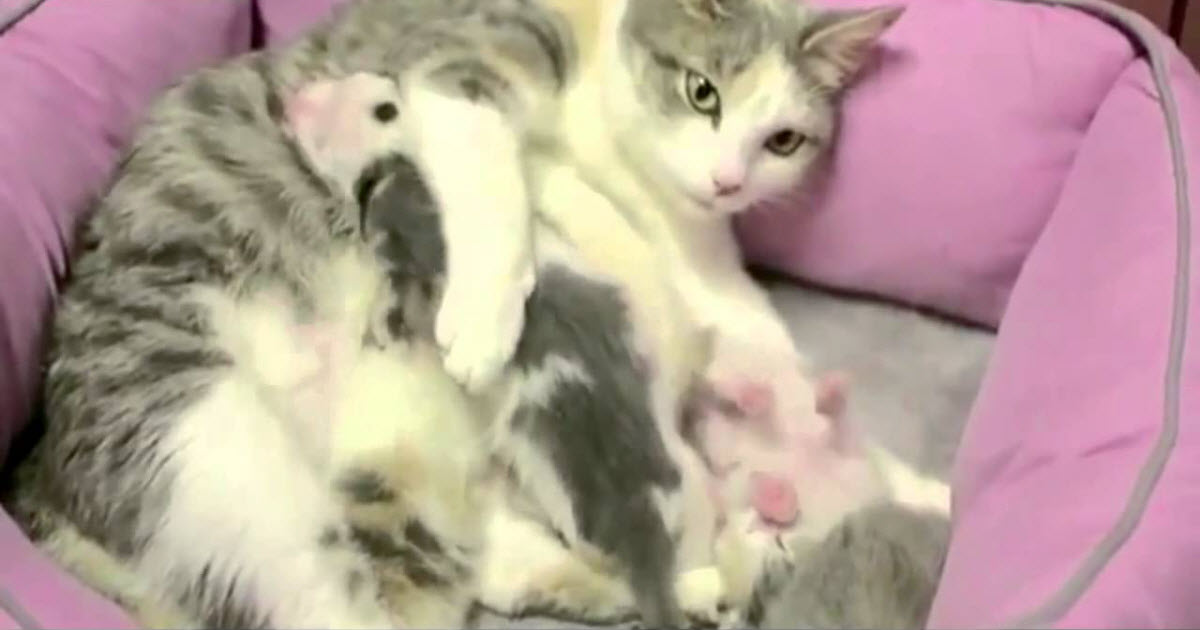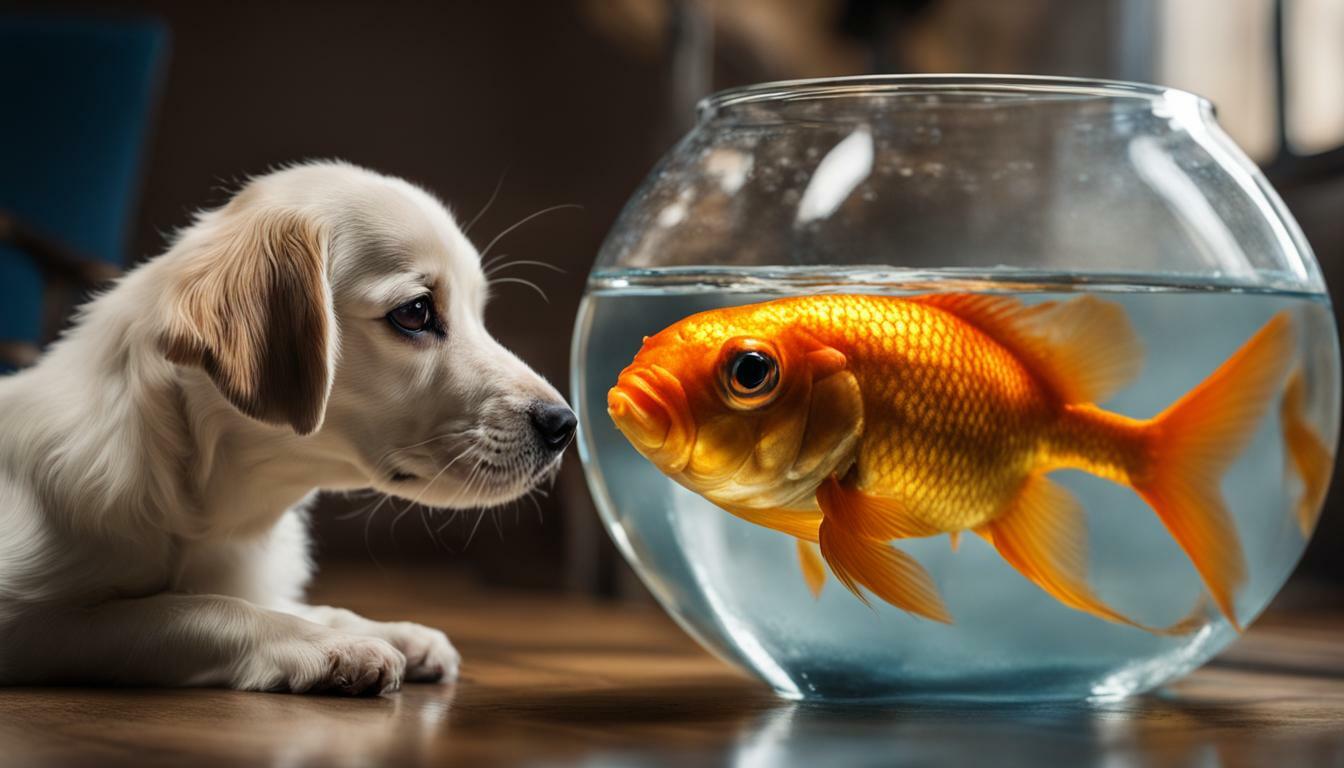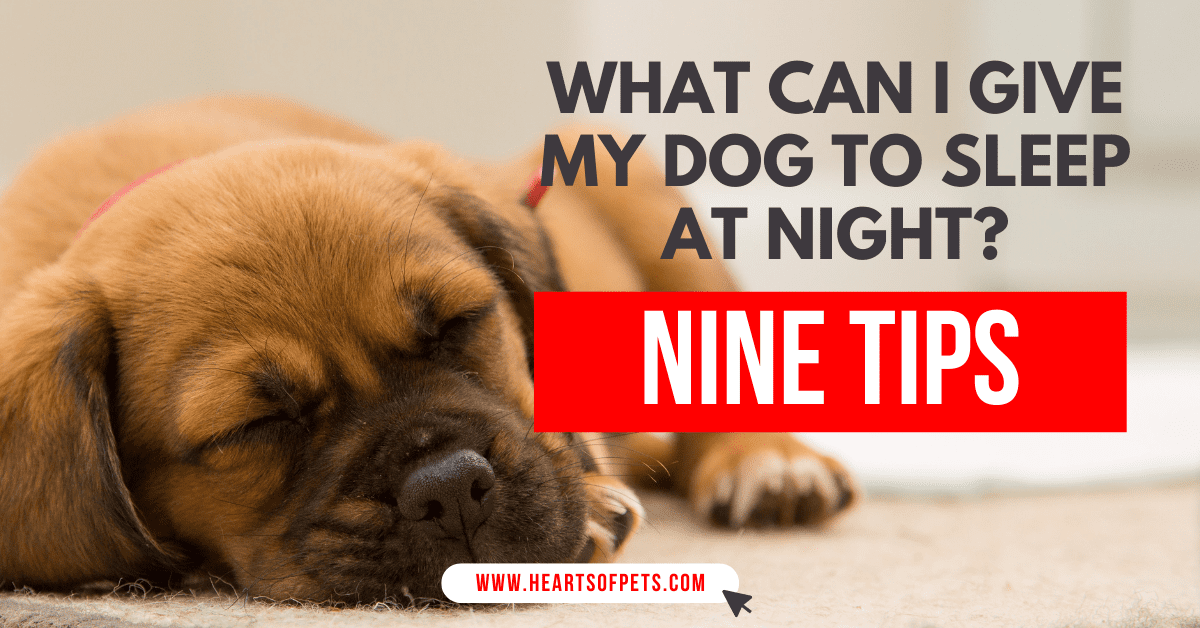When I’m sipping on my morning cup of joe, the thought crosses my mind: can dogs drink coffee? As a nation with immense love for our pets and a penchant for caffeine, it’s essential for us, as responsible pet owners, to understand the effects of coffee on dogs. Having spent considerable time researching and writing on pet safety guide principles, I’ve learned that the affinity we humans have for coffee doesn’t translate well to our canine companions. The presence of caffeine and dogs in the same sentence is a cause for concern, as our furry friends handle this stimulant much differently than we do.
Can Dogs Drink Coffee? No, they shouldn’t.
- Never allow dogs to consume coffee or any caffeine-containing products.
- Understand that caffeine can be highly toxic to dogs.
- Recognize that even decaffeinated coffee can pose a risk to pets.
- Be aware of added substances in coffee that could harm your dog.
- Search for dog-friendly beverage alternatives to keep your pet safe.
- Remember to seek immediate veterinary assistance if your dog ingests coffee.
- Keep coffee grounds, beans, and brewed coffee out of reach from pets.
The Hidden Dangers of Coffee for Our Canine Friends
As I delve into canine coffee consumption, it’s imperative for us as pet owners to recognize the dangers of coffee for dogs. You might find it hard to start your day without a fresh cup of joe, but is coffee safe for dogs? The stark reality is that an innocent sip could pose serious health risks to our furry companions.
Understanding Canine Coffee Toxicity
Caffeine toxicity in dogs is a more prevalent problem than many might think. The effects of coffee on dogs can be detrimental, affecting their central nervous system, heart, and digestive tract. Unlike humans, our canine friends cannot digest caffeine effectively, which can result in dangerous levels of caffeine poisoning in dogs. Within just an hour or two, symptoms such as restlessness and rapid heart rate may surface, leading to more severe outcomes.
How Much Caffeine is Too Much for Dogs?
The question ‘How much caffeine is too much?’ resonates deeply when it comes to dog-friendly beverages. For dogs, even minimal amounts of caffeine found in coffee grounds can be harmful and the risks scale up with the size and weight of the dog. Smaller breeds are especially susceptible to the intense impact of caffeine, which puts the seriousness of caffeine toxicity in dogs into perspective.
Why Even Decaf Can Be Hazardous for Dogs
Decaf coffee danger for dogs is not to be underestimated. Trace elements of caffeine can still lurk within decaf options, signaling the need for safer alternatives to coffee for our dogs. Thus, my recommendation is to always err on the side of caution and steer clear of sharing any form of coffee with your pets, ensuring their safety and your peace of mind.
Can Dogs Drink Coffee? Uncovering the Facts
When faced with the query, “can dogs drink coffee,” I wish I could say there’s room for debate. Unfortunately, the truth is black and white—coffee is a beverage pets should never consume. The presence of caffeine, a stimulant harmful to our furry friends, extends beyond the morning cup of joe to include items like tea bags, energy drinks, and even caffeine pills. Emphasizing that these products are not for pets is essential in preventing caffeine poisoning in dogs.—a serious and often life-threatening condition.
When considering the relationship between tea and dogs or any caffeine-laden substances and our pets, the risks are alarming. It doesn’t take much—a few laps of tea or ingestion of a caffeine pill can have catastrophic consequences for a small animal. While we, as humans, enjoy a wide berth of tolerance to caffeine’s effects, our canine companions do not share this resilience. What might be a mild stimulant for us can result in tragic toxicity for them.
It’s a common misconception that alternative forms of caffeine are safer for pets. Whether it’s a diet soda, a piece of dark chocolate rich in theobromine, or a supposedly “harmless” energy drink, the potential for harm is significant. Dogs exhibiting severe hyperactivity or distressing symptoms like vomiting might be suffering from an unsightly dance with caffeine toxicity. And so, keeping an eye on our curious companions is of utmost importance.
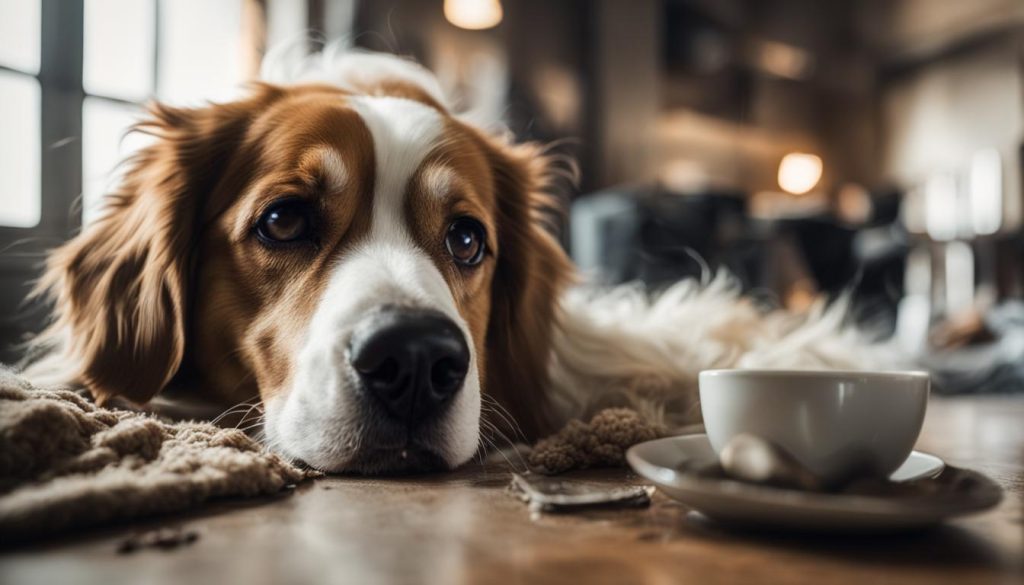
As a devoted pet owner, understanding these dangers is the first step. Ensuring that all caffeine-containing products are out of reach for pets, and spreading awareness about these dangers, forms the foundation of preventing any heart-wrenching emergencies. Let’s save our pets from the dangers of caffeine and save our coffee moments for human enjoyment alone.
Recognizing Symptoms of Caffeine Poisoning in Dogs
As a dedicated pet owner, my immediate concern is the well-being of my furry friend, especially when it comes to what they consume. Knowing the symptoms of caffeine poisoning in dogs is a critical component of any pet safety guide. It is not uncommon for our canine companions to sneak a sip of coffee accidentally left within their reach, so it’s essential to understand the potential effects of coffee on dogs to act quickly in a pet emergency.
When to Be Alarmed: Identifying Serious Signs
Even minimal exposure to caffeine can result in noticeable changes in a dog’s behavior and physical state. Symptoms can manifest rapidly, often 30 minutes to two hours following ingestion. The clear indicators include extreme restlessness, persistent vomiting, and a noticeable spike in heart rate. If my dog exhibits any of these signs or experiences tremors or agitation, it signals a potential caffeine overdose requiring immediate attention.
Immediate Actions to Take If Your Dog Consumes Coffee
In the scenario that my dog has ingested coffee, knowing what to do if your dog drinks coffee is vital for ensuring their safety. My priority is to remain calm and closely monitor for any signs of distress or caffeine toxicity. Without hesitation, my next step involves promptly contacting my veterinarian or reaching out to the Pet Poison Helpline for expert advice on managing the situation. They may recommend specific interventions, such as inducing vomiting or administering activated charcoal, which are pivotal steps in managing emergency vet care and mitigating the risk to my dog’s health.
Preventive Measures to Protect Your Dog from Coffee Exposure
As someone who truly cherishes the health and happiness of my furry friend, I am keenly aware of the dangers that lie in seemingly harmless household items like coffee. Preventing caffeine poisoning in dogs starts with a proactive approach to pet-proofing your home. This not only shields your four-legged pal from unwanted health issues but also gives you peace of mind. Let’s delve into the strategies that can ensure a safe and stimulant-free environment for your pet.
Creating a Safe Environment for Your Pet
To fend off any potential mishaps with canine coffee consumption, creating a pet-safe environment is essential. I take special care to keep all forms of coffee, including grounds, beans, and those tempting chocolate-covered espresso beans, well out of my dog’s reach. I’ve discovered that ensuring proper disposal of coffee remnants and firmly securing trash bags can thwart any curious sniffing and harmful scavenging. Moreover, consistency in placing coffee mugs and brewing equipment in areas where my dog can’t get to them is a crucial preventative tactic. After all, prevention is always better than the cure.
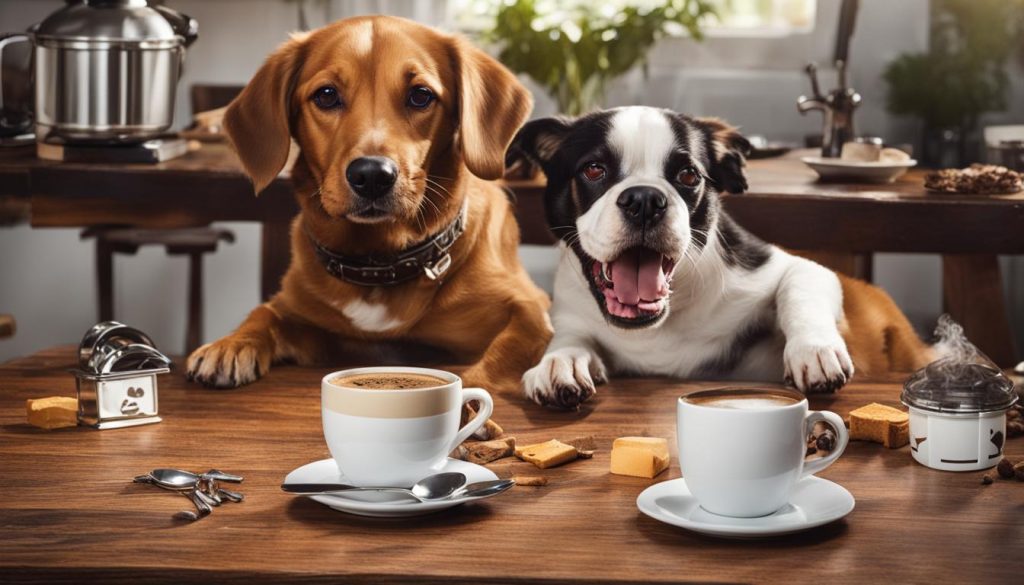
Educating Others About Pet Safety and Caffeine
While I’ve made my home a fortress against the risks associated with caffeine, I find it equally vital to educate others on pet safety and caffeine. This includes discussing with family, friends, and anyone who interacts with my pet about the importance of not leaving caffeinated beverages within paw’s reach. When hosting guests, I gently remind them of the no-coffee-ground rule and the secure disposal of any hazardous items. Additionally, having trained my dog to obey commands such as “leave it” has fortified his resistance against gobbling down unsafe substances. And while my dog can’t join me for a morning cup of joe, we’ve found dog-friendly beverages that let him partake in his own kind of toasting ritual.
In our commitment to pet health, we’re constantly on the lookout for alternatives to coffee for dogs, focusing on both enjoyment and well-being. Because when we talk about love and care for our pets, it’s not just about keeping hazards away; it’s also about enriching their lives with safe pleasures. Championing pet-proofing and advocating for the education on pet safety and caffeine, we carve out a secure and joyful niche for our best pals.
What to Do if the Worst Happens: Responding to Coffee Ingestion
My heart always races when I think about what could happen if my dog accidentally ingests something toxic, like coffee. Knowing the right emergency response to caffeine ingestion could literally save my furry friend’s life. Firstly, I make sure I’m aware of how much they’ve consumed and their weight; these details are vital when seeking emergency veterinary care for coffee poisoning.
In such critical moments, time is of the essence, and the right actions are crucial. Professionals may recommend inducing vomiting to prevent further caffeine absorption. Utilizing activated charcoal is another step in the caffeine detox for pets as it binds to the toxin and helps in its elimination. Hydration through administering fluids is essential, as well as medications to manage dire symptoms like irregular heart rates or tremors. Reaching out to a veterinarian immediately can dramatically heighten the chances of a full and rapid recovery for my dog. It’s always best to err on the side of caution and have a plan in place for these kinds of emergencies.
Conclusion
In the same way that we safeguard our own health, it’s paramount to prioritize our dogs’ well-being by understanding what is safe for them to consume. When it concerns the question, “can dogs drink coffee?”, the unequivocal answer is no. This stems from dogs’ increased vulnerability to caffeine, which can prompt severe health complications, and in some cases, be fatal. As responsible pet owners, my mission is to ensure their environment is free from the dangers of coffee for dogs and to keep vigilant watch over their daily activities.
Being prepared in case of accidental ingestion is just as pivotal as prevention. Keeping the Pet Poison Helpline handy and knowing the steps to take can be a lifesaving protocol. Effective pet safety guide practices go a long way—like storing coffee products safely and educating everyone in the household. Prioritizing non-caffeinated, dog-friendly beverages can also prevent untoward incidents.
I urge fellow dog owners and pet enthusiasts to maintain a strong knowledge base about pet health and dietary restrictions. In essence, understanding the dangers of coffee for dogs and the precautions to take embodies the commitment we have to the safety and happiness of our canine companions. By sharing this knowledge and experience, I hope to foster a community that values and protects the lives of our beloved pets.
FAQ
Can dogs drink coffee?
No, dogs should not drink coffee. Coffee contains caffeine, which is toxic to dogs and can lead to caffeine poisoning.
What are some effects of coffee on dogs?
The effects of coffee, or caffeine, on dogs can include restlessness, hyperactivity, vomiting, an elevated heart rate, tremors, seizures, and even death. These symptoms can vary based on the dog’s size and the amount of coffee consumed.
Is caffeine dangerous for dogs, and how much is too much?
Yes, caffeine is dangerous for dogs, and there is no safe amount. Even small quantities can be harmful, especially for smaller dogs. The risk of caffeine toxicity increases with the amount of caffeine ingested.
Why can even decaf coffee be hazardous for dogs?
Decaf coffee can still contain trace amounts of caffeine, which can be dangerous to dogs. Dogs are more sensitive to caffeine than people, and even small amounts can cause caffeine poisoning.
What should I do if my dog consumes coffee?
If your dog consumes coffee, contact your veterinarian or the Pet Poison Helpline immediately. They may recommend monitoring your pet for symptoms or may have specific instructions, such as inducing vomiting or providing certain treatments depending on the situation.
How can I prevent my dog from being exposed to caffeine?
To prevent caffeine exposure, keep all coffee products and other caffeine-containing items well out of your dog’s reach. Secure trash bags, place coffee pots and cups in safe locations, and train your dog with commands like “leave it” to avoid consuming anything dangerous.
Why is educating others about pet safety and caffeine important?
Educating others about the dangers of caffeine for pets is crucial because it helps ensure that everyone in your household and visitors are aware and vigilant about keeping potentially toxic items away from your dog. It’s a collective effort to maintain a safe environment for your pet.
What immediate actions should I take if my dog shows symptoms of caffeine poisoning?
If your dog shows symptoms such as restlessness, vomiting, or tremors after consuming caffeine, immediate action is necessary. Contact your veterinarian or Pet Poison Helpline for advice on immediate actions, which may include induced vomiting, activated charcoal administration, or emergency vet care.
Are there any dog-friendly beverages as alternatives to coffee?
Absolutely! There are plenty of dog-friendly beverages that are safe for your pet to enjoy. These include fresh water, dog-specific non-alcoholic beer or wine, and specially formulated pet beverages that do not contain caffeine, alcohol, or any other harmful substances.
What kind of emergency vet care might be necessary for caffeine ingestion in dogs?
Emergency vet care for caffeine ingestion may involve treatments such as medication to control heart rate, seizures, or tremors, IV fluids to support hydration and circulatory function, and continuous monitoring to manage symptoms and ensure the dog’s recovery.


